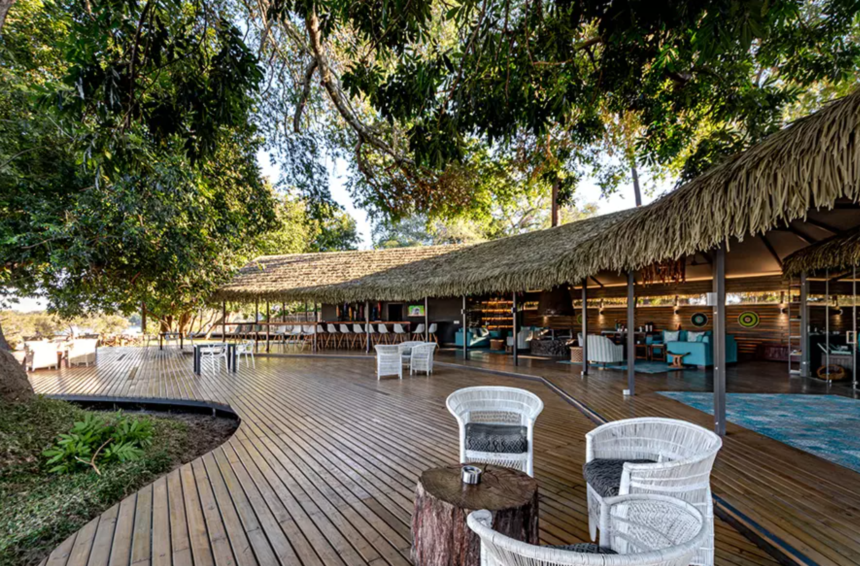Zimbabwe’s tourism sector is experiencing a significant transformation, marked by rapid growth and expansion across the country. Traditionally known for the majestic Victoria Falls, Zimbabwe is now witnessing a surge in tourism activities in less-explored regions such as the Eastern Highlands, Chinhoyi, the Midlands, and Kariba. This diversification of tourist destinations is redefining Zimbabwe’s tourism landscape and driving a new wave of development in the industry.
One of the most significant developments in Zimbabwe’s tourism sector is the proliferation of safari camps and eco-tourism initiatives. The country’s vast and diverse wildlife reserves, including Hwange National Park, Mana Pools, and Gonarezhou, have long been magnets for international tourists. However, recent years have seen a marked increase in the number of safari camps, offering unique experiences that cater to a growing demand for sustainable and immersive travel.

These camps are not only appealing to international visitors but are also attracting a expanding domestic market. The rise in Zimbabwean tourists exploring their own country has led to the development of more accessible and affordable safari experiences. This trend is particularly evident in areas like the Eastern Highlands, where the breathtaking landscapes and cooler climate offer a serene escape from the hustle and bustle of city life.
While Victoria Falls remains a top destination, other regions are rapidly emerging as must-visit locations. The Eastern Highlands, with its misty mountains, lush forests, and cascading waterfalls, is becoming increasingly popular among hikers, bird watchers, and nature enthusiasts. The region’s unique microclimate and biodiversity make it an ideal destination for eco-tourism and adventure sports.

Chinhoyi, known for its mysterious caves and crystal-clear blue pools, is another destination gaining attention. The Chinhoyi Caves, steeped in legend and history, are a draw for both local and international tourists. The Midlands, with its rich cultural heritage and diverse landscapes, offers a blend of historical tours and outdoor activities, appealing to a wide range of visitors.
Kariba, home to one of the world’s largest man-made lakes, is evolving into a prime location for water-based activities such as fishing, houseboating, and wildlife viewing. The lake’s shores are dotted with new lodges and campsites, providing a range of accommodation options to meet the growing demand.
A significant driver of this tourism boom is the Zimbabwean diaspora. As economic conditions improve and connectivity with the global community strengthens, more Zimbabweans living abroad are returning home to explore and invest in their country’s tourism sector. This trend has led to an increase in domestic tourism, with more Zimbabweans traveling across the country, discovering new destinations, and staying in local accommodations.

The growing interest in domestic travel has prompted the development of new hotels, lodges, and guest houses, particularly in previously underdeveloped areas. This surge in demand is providing a much-needed boost to local economies and encouraging further investment in the tourism infrastructure.
Rural tourism is a promising niche within Zimbabwe’s expanding tourism industry. With increasing awareness of the cultural and natural richness of rural Zimbabwe, more tourists are venturing off the beaten path to explore the country’s remote villages and traditional homesteads. This trend is not only enriching the visitor experience but is also providing rural communities with new economic opportunities.

Many Zimbabweans are now developing their rural homes into tourist-friendly accommodations, offering authentic experiences that showcase the country’s traditions, crafts, and rural way of life. This form of tourism is expected to grow rapidly in the coming years, as more travellers seek to connect with Zimbabwe’s cultural roots and enjoy the simplicity and tranquillity of rural living.
The expansion of Zimbabwe’s tourism sector is a testament to the country’s rich natural and cultural heritage. With the rise of new safari camps, the development of emerging tourism hotspots, and the growing popularity of rural tourism, Zimbabwe is well on its way to becoming a top destination for both international and domestic travellers. As the industry continues to thrive, it holds the promise of not only boosting the national economy but also fostering sustainable development and cultural preservation across the country.











I am extremely impressed with your writing skills and also with the layout for your blog. Is this a paid subject matter or did you customize it yourself? Anyway keep up the nice quality writing, it’s uncommon to look a great weblog like this one today. !